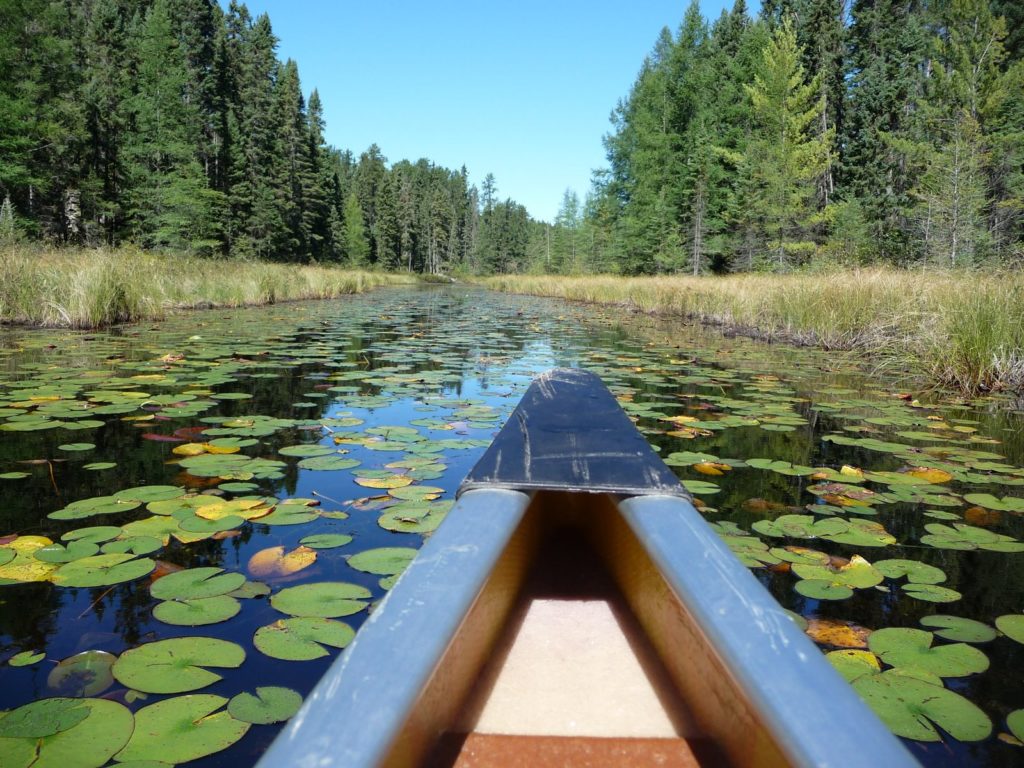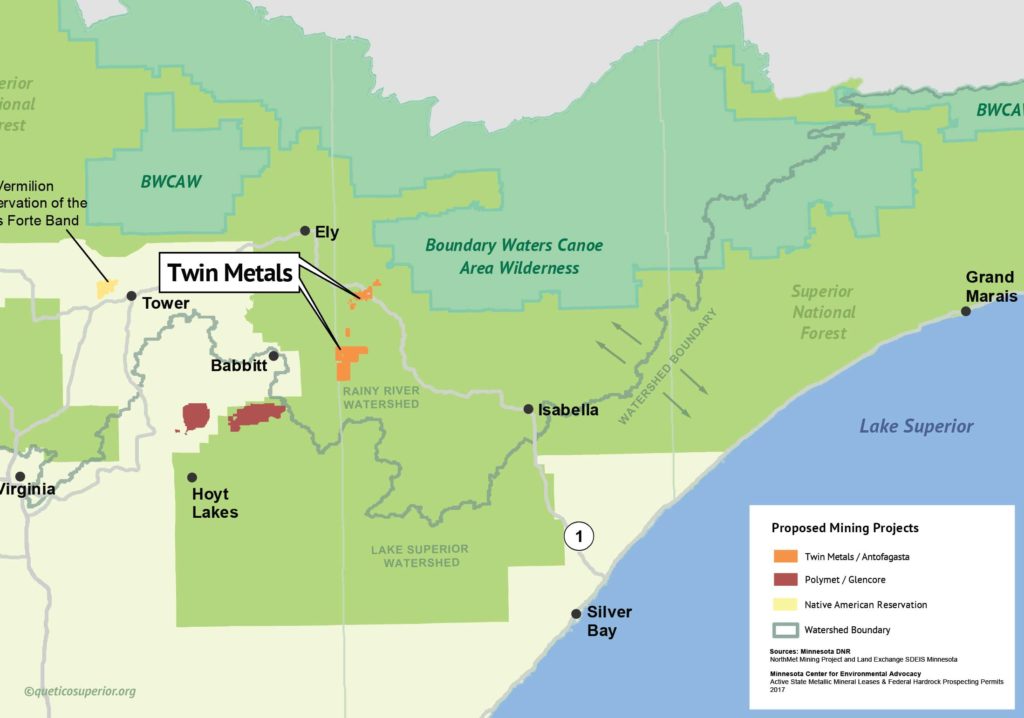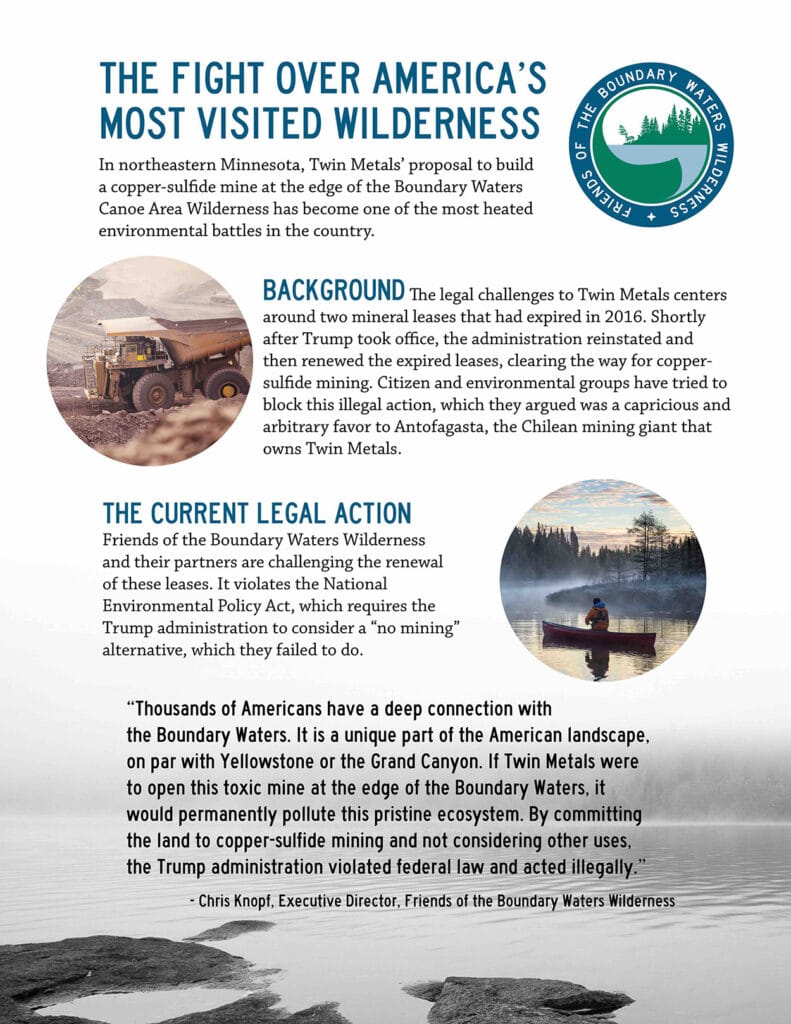
A coalition of environmental organizations and northeastern Minnesota businesses has filed a second lawsuit challenging how the Trump administration renewed federal mineral leases for the Twin Metals project. The proposed mine would be located just a few miles from the edge of the Boundary Waters Canoe Area Wilderness, posing a threat of pollution to the popular area.
The suit is the second legal challenge to the leases, which were cancelled in 2016 by the Obama administration. The cancellation was reversed by Trump’s Bureau of Land Management in 2018, and the leases were renewed. The first lawsuit, currently being appealed in federal court, challenged the reinstatement.
“If Twin Metals were to open its toxic mine near the Boundary Waters, it would permanently pollute some of the cleanest water in the country,” said Chris Knopf, executive director of the Friends of the Boundary Waters Wilderness, one of the complainants. “In renewing Twin Metals’ leases, the Trump administration acted illegally under federal law.”
Inadequate review
The new filing claims that the federal government failed to do an adequate environmental review when it decided to renew the leases. The filing argues that doing so violated the National Environmental Policy Act, which governs what levels of review are required for various decisions.
“The Trump administration has approved leases for a mine which the Forest Service previously refused to allow because of how damaging it will be to the environment,” said Elizabeth Forsyth, staff attorney for Earthjustice, which is representing some of the groups. “Instead of grappling with the mine’s impacts, the administration has ignored them and rushed its approval with almost no environmental analysis. The Trump administration’s brazen disregard for the law, and blind eye towards the devastating impacts of what it is approving, cannot be allowed to stand.”
The suit was filed by national groups The Wilderness Society, Izaak Walton League of America, and the Center for Biological Diversity; local groups Friends of the Boundary Waters Wilderness and Northeastern Minnesotans for Wilderness; and nine businesses including BWCAW outfitters and resorts, Northstar Canoe, and Voyageur Outward Bound camp.
“By renewing Twin Metals’ Leases, the Bureau committed to allowing mining on the Leases and did not reserve absolute authority to prevent development,” the complaint reads. “The agency did not prepare an EIS as required by NEPA, however. Instead, the Bureau prepared an Environmental Assessment (“EA”)—a document limited to determining the threshold question of whether an action will have significant impacts on the environment. The EA did not evaluate the impacts of the associated proposed mine, nor did it meaningfully consider lease stipulations that would have mitigated the impacts of the mine.”
‘Shoddy analyses’
Environmental advocates point out that the Environmental Assessment failed to consider a key question: what would be the impact of renewing the leases, with an aim to developing a mine at the site, compared to no mining.
“The federal agencies conducted the most superficial of reviews and, by their own admission, did not even consider the impacts of mining in renewing the leases,” said Tom Landwehr, executive director of the Campaign to Save the Wilderness. “Such shoddy analyses on a proposal as devastating as allowing sulfide-ore copper mining on the edge of the Boundary Waters is unconscionable.”
The filing also accuses the U.S. Forest Service of “flip-flopping” on the issue, first saying mine development at the site would “pose unacceptable ecological risks to the Boundary Waters,” and later agreeing to the lease renewal anyway.
“The Forest Service’s decision to agree to these stipulations without rationally explaining the departure from its prior position was arbitrary, capricious, and not in accordance with law,” the complaint reads.
The suit names defendants David Bernhardt, Secretary of the Interior, and several other leaders in the department, as well as the Forest Service and its chief, Victoria Christiansen.
Advocates said the bottom line was that the Trump administration took extraordinary steps to prioritize the mine project and push it forward. Twin Metals disagrees.
“The renewal of the leases was lawful and fully compliant with all environmental and other requirements,” Twin Metals spokesperson Kathy Graul told the Duluth News Tribune. “No mining can occur under the leases prior to the approval of a mine plan. Any proposed mine project, like the one submitted by Twin Metals in late 2019, will be subject to thorough environmental review by federal, tribal and state governments and will include multiple opportunities for public participation.”
There will be a webinar about the lawsuit led by one of the lead attorneys on the case on Thursday, May 7 at noon Central Time. Registration is required.
More information:
- Read the full complaint, The Wilderness Society et al. v. Bernhardt et al. (PDF)
- Groups, businesses sue over environmental review of Twin Metals mineral lease renewal – Duluth News Tribune
- Lawsuit Targets Toxic Copper Mine Threatening Minnesota’s Boundary Waters Wilderness – Earthjustice



